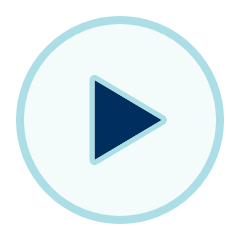Joint Master's Programme in Health Informatics
The programme is aimed at students who are interested in information technology and its application to medicine or healthcare.
You will learn methods to make healthcare safer, more efficient and of higher quality through computer-based information and knowledge management.
This Master’s programme is given as a joint programme between Karolinska Institutet and Stockholm University.
Students may have their initial training in either health care or a technical discipline.
Watch our webinar and find answers to all your quesitons!
Programme coordinators Uno Fors Stockholm University and Nadia Davoody Karolinska Institutet present the programme and answer questions from prospective students.
-
Programme overview
The first semester establishes a common ground, where students with technical backgrounds take courses in basic medical sciences, health care organisation and management. While students with healthcare backgrounds study basic computer and systems sciences. The first semester ends with a joint course in health care information systems.
The second semester covers basic health informatics methods for user needs and requirements engineering, methods for evaluating different aspects of health information systems during and after implementation, as well as health informatics standards. Further, students will get an introduction into data science methods and have a course on scientific methods at advanced level.
The third semester provides an introduction to project management where previously studied data science methods will be applied in project form. Further, students have the choice of either a course in information security or entrepreneurship. They will also get insight into current research topics in health informatics through a course preparing students for own scientific studies.
The fourth and final semester consists of a thesis in which students carry out a larger scientific study.
Year 1
1st Semester
For all students
Health informatics – needs, objectives and limitations 5 credits (KI)
Two alternatives depending on your background:
Alternative 1 - bridging course for students with healthcare background.
Supplementary course in Computer and Systems Sciences 15 credits (SU)
Alternative 2 - bridging courses for students with IT background.
Basic medical science 7,5 credits (KI)
Health care organisation and management 7,5 credits (KI)For all students
Computer applications in health care and biomedicine 10 credits (KI)2nd Semester
User needs and requirements engineering 10 credits (KI)
Standardisation within health informatics 5 credits (KI)
Data Science for Health Informatics 7,5 credits (SU)
Scientific research methods 7,5 credits (KI)Year 2
3rd Semester
Project management and tools for health informatics 7,5 credits (SU)
Current research and trends in health informatics 15 credits (KI)Elective course 1 x 7,5 credit
One of the two following courses:Introduction to Information Security 7,5 credits (SU)
Entrepreneurship in the Digital Society 7,5 credits (SU)4th Semester
Master thesis in Health Informatics 30 credits (KI & SU)
-
How to apply
Application for this programme is done via Karolinska institutet.
More information about the programme and application
For information on the application process please contact the Admissions Office at Karolinska Institutet.
-
More information
-
Career opportunities
IT implementation in healthcare requires people with a solid understanding of both the needs of the healthcare sector and the strengths and limitations of technology.
A health informatician’s unique interdisciplinary expertise makes him/her particularly suited to assume a coordinating and bridging role between these two areas. Many health informaticians work as project managers. Other common roles are CMIO (Chief Medical Information Officer) or CCIO (Chief Clinical Information Officer), IT managers, clinical informaticians, application experts, requirements analysts, system specialists, system developers, interaction designers, evaluators and researchers. Many also start own companies.
-
Contact
For more information about the programme and its outline, please contact:
Nadia Davoody, nadia.davoody@ki.se








